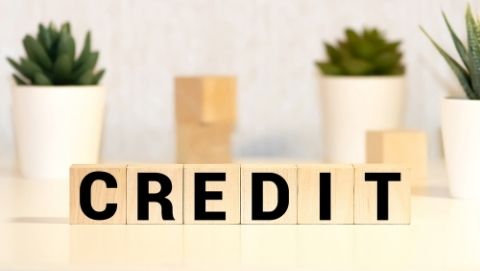What is the Best Way to Build Credit?
By: Vincenza Vicari-Bentley, Empowering Financial Wellness Program Coordinator
January 20, 2021

As consumers, most of us are going to use credit at some point in our life. In order to be less of a risk to lenders we may need to work on building our credit history and credit score. If you, or someone you know, may be considering building or improving their credit score, here are a few strategies that may help.
- Credit Card- With credit cards there are some options to get you started building good credit history. You may want to consider starting with a secured credit card which looks like and can be used just like a regular credit card. To get a secured credit card you deposit money into a savings account as collateral. To apply for a secured credit card, check with your local bank or credit union. Authorized user is another option to start your credit history. A family member or significant other may be willing to add you as an authorized user on his or her card. Doing so adds that card's payment history to your credit files, so you'll want a primary user who has a long history of paying on time. You don't have to use or even have the credit card at all in order to benefit from being an authorized user. One last thought - be sure to ask the primary cardholder to find out whether the card issuer reports authorized user activity to the credit bureaus. Otherwise, your credit-building efforts may be wasted.
- Secured or Credit Builder Loan - If you have money on deposit in a bank or credit union, ask them about a secured loan for credit-building. With a credit builder loan, the money you borrow is held by the lender in an account and not released to you until the loan is repaid. It’s a forced savings program of sorts, and your payments are reported to credit bureaus.
- Get Credit for Bill Payments - There are also ways to use rent, phone and utility payments to build credit. Some of these ways are free, others carry a fee. An example would be Experian Boost which offers a way to have your cell phone and utility bills reflected in your credit report with that credit bureau. But keep in mind that the effect is limited only to your credit report with Experian — and any credit scores calculated on it.
- Practice Good Habits - Building good credit takes a little time. In fact, most reporting bureaus suggest it takes a history of at least six months of on time payments to generate a FICO credit score. Once you’ve had a few months of credit history you'll want to monitor both to watch for errors and to see your credit-building efforts pay off. You can check your credit report for free at www.annualcreditreport.com from all 3 of the major credit bureaus (Experian, TransUnion and Equifax). Due to the pandemic, through April 2021, you can check your reports for free weekly.
Keep a close look at how you manage your money. Have a spending plan. Look at your income and compare it with your expenses. Make sure you pay your bills on time (paying on time affects 35% of your credit score). When used wisely, credit is a powerful tool that can help you realize your financial goals!
References:
- www.experian.com
- www.equifax.com
- www.transunion.com
- Rowe, Barbara R. (2001) Building a New Credit Report. Utah State University Extension https://digitalcommons.usu.edu/cgi/viewcontent.cgi?article=1571&context=extension_cur all
- House, Ann., Bingham, Al. (2009) Credit Scores - More Important than Ever. Utah State University Extension https://digitalcommons.usu.edu/cgi/viewcontent.cgi?article=1156&context=extension_curall
- Issa, Erin L., O’Shea, Bev. (2020). How to Build Credit. https://www.nerdwallet.com/article/finance/how-to-build-credit

